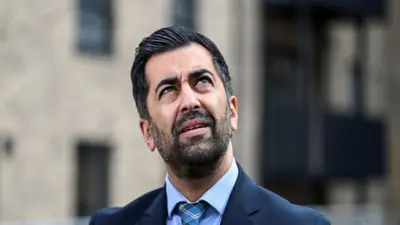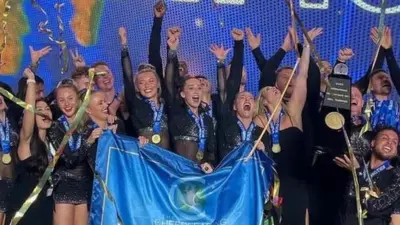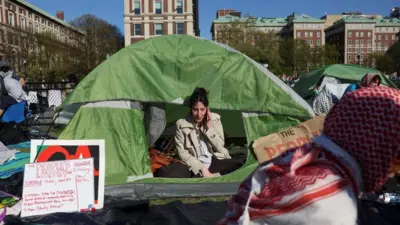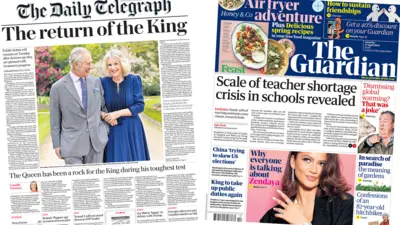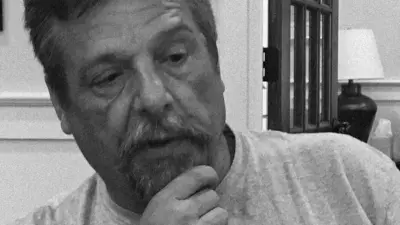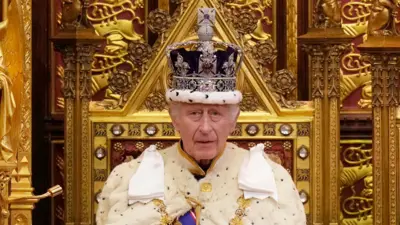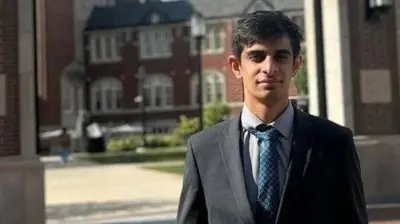We've updated our Privacy and Cookies Policy
We've made some important changes to our Privacy and Cookies Policy and we want you to know what this means for you and your data.
Jacob Zuma's MK - the political wildcard in South Africa's election
- By Farouk Chothia
- BBC News, Johannesburg
Image source, Getty Images
Despite being a disgraced former president who was sent to jail, Jacob Zuma is turning out to be the political wildcard in South Africa's election campaign.
This follows his dramatic decision to ditch the governing African National Congress (ANC) for the newly formed party uMkhonto we Sizwe, meaning Spear of the Nation.
The 81-year-old is leading its campaign in the 29 May general election, urging people to turn their backs on the ANC led by his successor, President Cyril Ramaphosa.
"Zuma is, as ever, playing a mischievous hand," political analyst Richard Calland told the BBC.
"He doesn't want power, but leverage in the ANC. He wants to dethrone Ramaphosa for a more pliable leader," he said.
The two most recent opinion polls suggest that Mr Zuma's party - known by the acronym MK - is making a huge impact, gaining around 13% of the national vote and 25% in the former president's political heartland of KwaZulu-Natal.
But Angelo Fick, the director of research at the Auwal Socio-Economic Research Institute in Johannesburg, believes that the party will get fewer votes, especially in the ballot for the national parliament.
"I'll be surprised if it gets 6%," he told the BBC.
Image source, Getty Images
To back up his view, he cited the performance of the Economic Freedom Fighters (EFF) in the first election it contested after expelled ANC youth leader Julius Malema formed the party.
Mr Malema took much of the ANC youth membership into the EFF, but the party only got 6% of the national vote in 2014, and 11% in 2019.
"The MK party is not as organised in 2024 as the EFF was in 2014," Mr Fick said.
Prof Calland said Mr Zuma was the key to the party getting votes.
"He has a certain charisma and populist appeal. He still holds some loyalty and credibility, especially among people in KwaZulu-Natal," he added.
The MK party is hoping to hold the balance of power, especially as various opinion polls suggest that the ANC could lose its outright majority in the national parliament for the first time since it was elected at the end of white-minority rule three decades ago.
"Once we enter minority government territory, every single percentage matters. If the MK party gets 3%, it could be the difference between the ANC getting 48% and 51%," Prof Calland said.
Paddy Harper, the South African Mail & Guardian newspaper's KwaZulu-Natal correspondent, said the ANC "was potentially at its weakest in the province, and it will be a massive blow to the party if it loses control of the provincial government".
"When Zuma was in the ANC, KwaZulu-Natal became the party's largest and most influential province. It helped the ANC cross the 50% line in every national election since 2004," he told the BBC.
At first, the ANC ignored the formation of the MK party but after Mr Zuma threw his weight behind it in December, the party launched legal action in the electoral court to deregister it and prevent it from running.
It also wants the High Court to bar it from using the name MK, arguing that the ANC has copyright over it.
The battle over the name is crucial, as MK refers to the now-defunct armed wing of the ANC that Nelson Mandela launched in 1961 to fight the racist system of apartheid.
So, it has deep political symbolism, with the ANC determined to prevent Mr Zuma - who joined the ANC's armed struggle as a teenager - from claiming to be its heir.
Image source, Reuters
In a widely circulated video earlier this month, a senior member of the MK party, Visvin Reddy, warned that there would be "anarchy" if the party was barred from contesting the election.
The party's spokesman distanced MK from Mr Reddy's comments, but similar comments were made on Wednesday by the party's youth leader, Bonginkosi Khanyile.
"If they remove the MKP and President Zuma from the ballot as the face of the campaign and try to take our rights, there won't be elections in South Africa," he said.
Another dispute is raging over whether Mr Zuma is eligible to serve as a lawmaker as he was convicted of contempt of court, and sentenced to 15 months in prison in 2021, for refusing to co-operate with a judge-led inquiry into corruption during his nine-year presidency.
Mr Zuma is also facing 16 charges of corruption over a multi-billion dollar arms deal, in a case that has dragged on for years as the former president challenges attempts by the prosecution to put him on trial.
The MK party has put Mr Zuma at the top of its list of parliamentary candidates, despite the fact that the Independent Electoral Commission pointed out in January that his conviction disqualified him.
Mr Harper said he expected Mr Zuma to remain the public face of the MK party's campaign - even if he is barred from running for parliament.
"It will just help Zuma crank things up, and give him another reason to claim that he is a victim of a political conspiracy," he said.
Mr Zuma's daughter, Duduzile Zuma-Sambudla, has also been nominated as a parliamentary candidate by the MK party, suggesting that the former president sees her as his political heir and the guardian of his legacy.
Image source, Getty Images
The 41-year-old gained notoriety for her inflammatory social media posts during the 2021 riots that hit South Africa after her father's imprisonment.
"Let it burn," she wrote, as buildings and vehicles were set alight, in violence that President Ramaphosa described as an attempt to stage an "insurrection".
In December, she was the one who read out a statement on behalf of her father announcing that he had thrown his weight behind the MK party.
The statement characterised Mr Ramaphosa as a "proxy" of "white capitalist interests" and said voting for the ANC would lead to government by "sell-outs and apartheid collaborators".
It showed the deep political animosity that Mr Zuma has for Mr Ramaphosa.
Many South Africans are hoping that it will not lead to a new wave of violence, as the two men fight it out in the election.
You may also be interested in:
Top Stories
Features & Analysis
Most read
Content is not available
